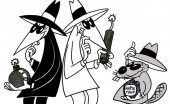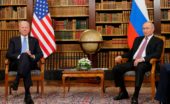Re Ian Bremmer 'Could third-party candidates upend the 2024 US election?' 3 April The current political movement in the USA…
Wednesday Night #1657
Written by Diana Thebaud Nicholson // December 4, 2013 // Wednesday Nights // 2 Comments
John Curtin advises that in his continuing quest to explore multiple aspects of the Royals, he “will be flying to Dallas this Wednesday… to interview a former royal chef who began his career peeling carrots for the Queen’s horses.”
T H E P R O L O G U E
Three years ago this week, on December 1st we celebrated the glorious 1500th Wednesday Night with many of you at an unforgettable evening at the University Club. Since then, while sadly a few of the seats around the table are no longer occupied by the stalwarts, welcome new faces have appeared to add fresh perspectives on the array of topics that feed our unabated preoccupation with the state of the world, Canada, Quebec and Montreal. The headlines change, our focus shifts, but your loyal and enthusiastic participation persists, for which we thank and applaud you!
Reviewing our principal topics of three years ago, we are struck by the similarity of our concerns today.
Education is a constantly evolving dossier. The PBS report on the new set of standards known as the Common Core In defining what public school students should know, teachers wonder ‘how?’ presents a glimpse of some creative teaching approaches that we would hope are adopted by Canadian schools.
The OECD has just released its report on the 2013 Programme for International Student Assessment (PISA); as usual, Asian students excelled, but Canadian 15-year-olds placed well above the OECD average, remaining among the top performers in mathematics.
However, the Canadian Council of Ministers of Education points out that While Canadian students did well in PISA 2012, results highlight some areas for continued focus. Although overall Canadian scores in mathematics remain high, they have drifted downward over time. Science and reading scores have not improved over the years either, with science scores showing a decline and reading scores remaining generally at the same level. No mention of the deplorable state of education among our First Nations communities.
In 2010, European and EU issues included Viktor Orban’s Hungary ( still a major concern), as well as Turkey’s accession to the EU – talks have now resumed after a 3+ -year hiatus. Today, concern is the messy and violent tug-of-war over Ukraine’s loyalties to the EU or Russia. Monday night’s interview with former U.S. Ambassador Steven Pifer casts some light on Why did Ukraine’s Yanukovych give in to Russian pressure on EU deal? Meanwhile Yanukovich flies off to China seeking loans and investment. Some European leaders may be tempted to leave him to the Chinese. What is it about leaders named Viktor?
Trade buffs are watching the WTO talks in Bali that will either end on Friday with the first global trade agreement since the WTO was created, or in a failure that kills off the Doha Round and casts the WTO into obsolescence, leaving standards up to bilateral and regional trade deals. The outlook is not very promising.
The Middle East (like the biblical reference to the poor) is always with us. The horrendous statistics from Syria continue to grow (126, 000 dead is the latest estimate) as the UN reports that “massive evidence” implicates Syrian president, Bashar al-Assad in war crimes. Talks in Geneva are planned for January 22nd, but it is hard to be optimistic. And of course, nobody, including Albania, wants to store the chemical weapons awaiting destruction.
As expected, grumbling from Israel about the nuclear deal with Iran is incessant and serves to remind us that Israel has (unacknowledged) nuclear capability. More interesting at this stage is consideration of the impact of the deal on both tensions and alliances in that part of the world. The Guardian’s analysis Iran deal could shake up Middle East after generations of conflict — Nuclear deal with Iran presents chance of change in alliances and rivalries that have dominated the region’ is a worthwhile read,
Israel brings us back – the long way round – to Canada. We are sure you did not miss the news that Stephen Harper has announced his first trip to Israel (apparently he is also going to Palestine and Jordan). However, you may have glossed over the reward for his government’s steadfast support – the building of the Stephen Harper J. Hula Valley Bird Sanctuary Visitor & Education Centre in Israel. Naming a sanctuary for a politician who is famous for taking no prisoners seems a little odd, or is this Israeli humour?
For more fodder on Canadian foreign policy, now apparently subsumed to trade policy, we suggest Andrew Cohen: Contradictory and incoherent foreign policy. For now, we will leave aside the ongoing Senate/PMO scandals; developments are so fast and furious that we find it hard to keep up, but we should all be paying attention to Michael Chong’s Reform Act – will it boost voter turnout, empower Parliament and save democracy, or snarl Canadian politics in an anarchic web of insanity? The debate is on!
Healthcare
Some positive news (at last) about Obamacare as Forbes informs us that Surprise-Obamacare Now Projected To Cost Hundreds Of Billions Less Than Expected, and our friends the two Davids (Jones and Kilgour) debate healthcare models this week.
David Jones: American system prior to Obama’s nuclear intervention was fine
vs
David Kilgour: Canada’s system can no longer be considered a point of pride
The economy
Spiegel worries about Feeding the Bubble: Is the Next Crash Brewing?; Nouriel Roubini agrees that we are headed Back to Housing Bubbles while Kimon Valaskakis elaborates on his theme that Prosperity For All Is Definitely Possible! Ron sends message from Cayman that “if anybody asks, the market correction is proceeding as expected.”
We always attempt to end on a lighter note and can think of few items more entertaining (or with a higher squirm factor) than the idea of Mayor Rob Ford sitting down for an interview with Conrad Black on the latter’s weekly public affairs show. An event not to be missed.




2 Comments on "Wednesday Night #1657"
If you look at the list, the leaders are all Chinese inhabited countries. By tradition, the Chinese are given to intense memorization/rote learning. In this case, that should make for lots of people who can apply existing mathematics, but not too many mathematicians creatively developing the discipline. I am sure that the Finns will not want to go down the Chinese road all the way. TD
Finland has fallen to place 3 in the Transparency International Corrupton Perception Index and from place 2 to 12 in PISA mathematics test. The first does not worry politicians or our business leaders, but to the other news got a swift response:
The Minister of Education got the news at 1200 hrs and appointed an emergency group to study the matter at 1237 hrs.
I would like to suggest that no-one is to serve as the Finance Minister if he/she cannot tell the differences between a million and a billion. TB
Bitcoin dialogue:
There are two ideal positions on bitcoin. You want to be the original issuer earning the seniorage, or in plain English, get real money for something that costs you nothing. The other profit maker is to hold a large short position when the price of bitcoins collapse. For this, you need someone who will make a large loan to you in bitcoins, and strong nerves until you liquidate your position. Tony
As I said, what we’re seeing here are poker chips. Valid for a limited number of transactions among the “consenting adult” casino players. I guess the eminent Senators and Federal Reservators should be asking is whether the US government would accept bitcoins as payment of taxes. In fact, would you accept payment for the sale of your house in them? Sam
How Many Tulips Can You Buy With One Bitcoin?
(The Atlantic)… Is bitcoin a bubble? The digital currency has now been the subject of a giddy U.S. Senate hearing, a Federal Reserve economist’s advisory letter, and oodles of bemused press. Since briefly losing value when law enforcement shut down the online black market Silk Road in October, the currency’s value has almost unstoppably climbed. A single bitcoin—little more than $13 a year ago—now costs over $1000.
“All I can say is that the crash is going to be great,” proclaimed technology writer Adrian Chen in the New York Times last week. “Bitcoin is too dependent on speculative mania to be of practical use as a currency.”